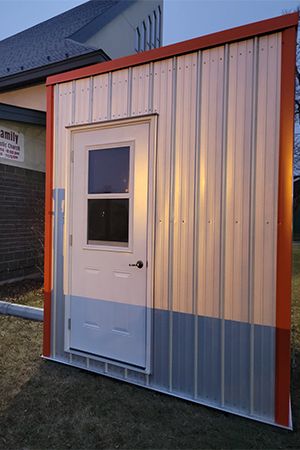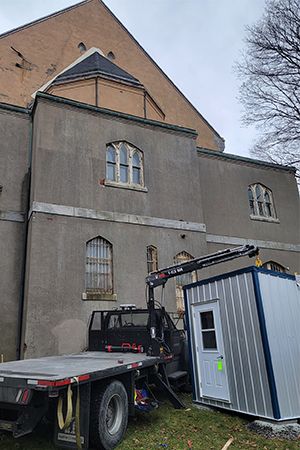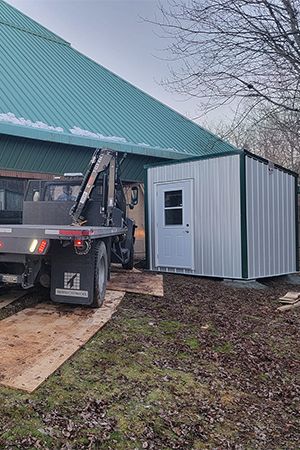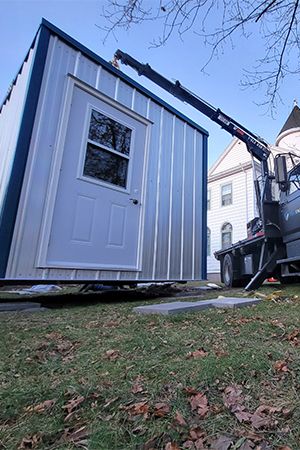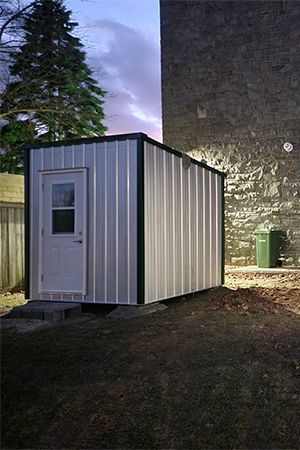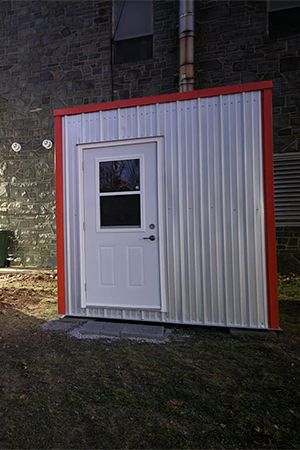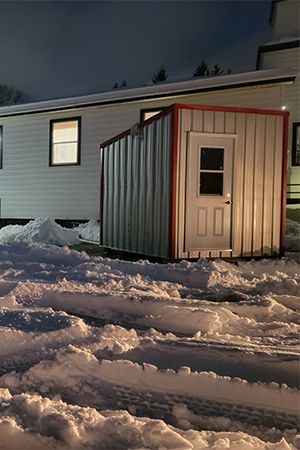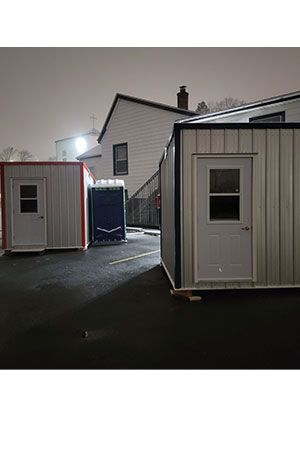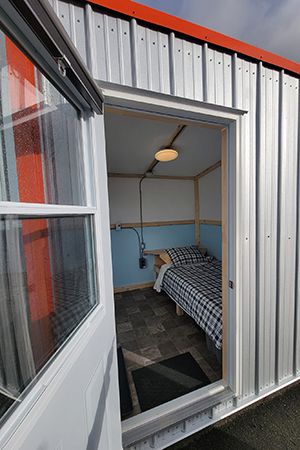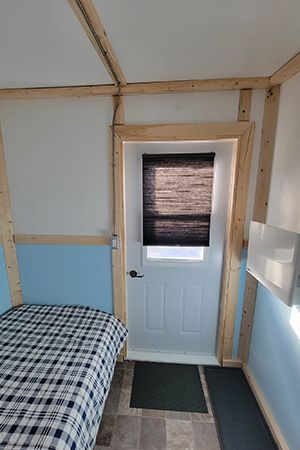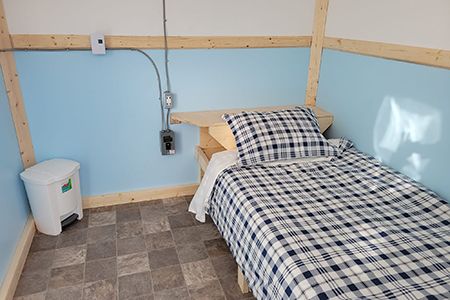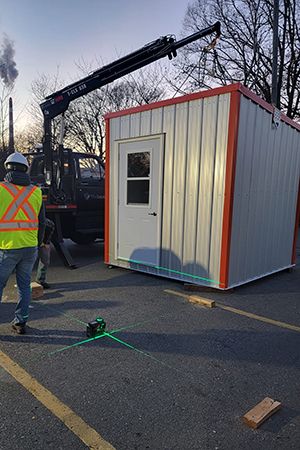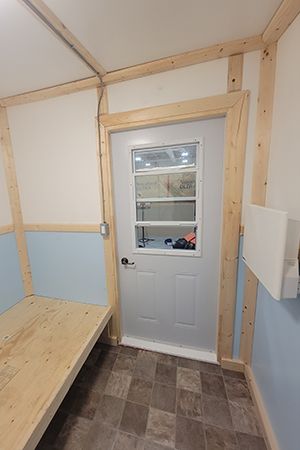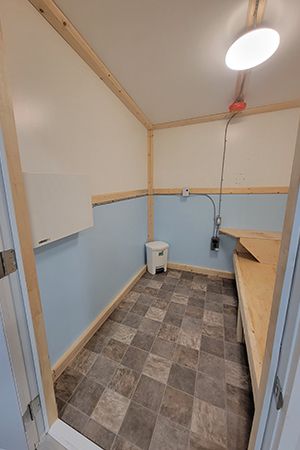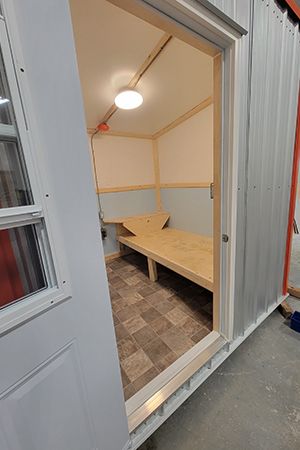
Emergency Shelters Program
Emergency Shelters Updates
In November 2021, the Archdiocese of Halifax-Yarmouth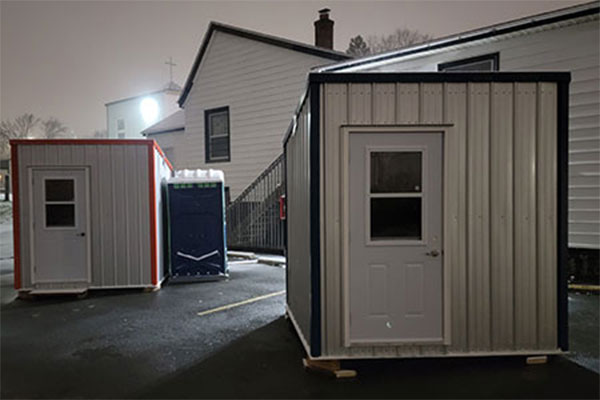 began a temporary Emergency Shelters Project toanswer the immediate need to provide safe spaces for those living in tents as the winter season began. Since then the temporary project has grown into a ministry program that aims to serve the vulnerable. The program continues to evolve to better help people who are experiencing housing insecurity find safety and stability.
began a temporary Emergency Shelters Project toanswer the immediate need to provide safe spaces for those living in tents as the winter season began. Since then the temporary project has grown into a ministry program that aims to serve the vulnerable. The program continues to evolve to better help people who are experiencing housing insecurity find safety and stability.
Find out how far the Emergency Shelters Program come by clicking on any of the updates below:
- Emergency Shelters: One year later (pdf)
- May 2023 update (pdf)
- November 2023 Update (pdf)
- April 2024 Update (pdf)
What is the Emergency Shelters Project?
In early 2021, Archbishop Dunn identified homelessness as one of our archdiocesan 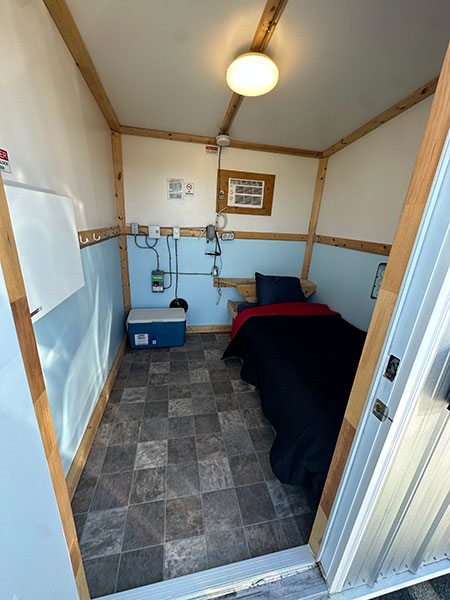 pastoral priorities.
pastoral priorities.
By the fall of that year we recognized the the growing homelessness crisis in the province. In seeing the need, we responded. In November 2021 the Archdiocese made plans to create temporary shelters to get those who were living in tents out of the cold as winter approached and so the Emergency Shelters Project began. Through this initiative we created 20 temporary shelters and placed them at parishes around the diocese. These became places for people experiencing homelessness to call home, albeit temporarily, for the winter months.
Each shelter has an 8’x8’ footprint with steel siding. Inside there is a build-in bed, a heater, a single light fixture, a smoke detector and USB charge ports. In 2022 air conditioning and updated door locks have been added.
Initially the project was to run from December 2021 to May 31, 2022. But the housing crisis continues, and in fact has grown. Instead of ending the project we have we extended, and expanded, the initiative by hiring a full-time Shelters Coordinator. With this fulltime staff person in place we have begun to transition this project into a temporary transitional housing program with lead by the Diocesan Shelter Coordinator.
FAQ's
People need our help. Facing a winter sleeping in a tent or outdoors is a significant human crisis. Our faith calls us to serve those in need; in fact, it is one of our most important Gospel values to love our neighbour.
Corporal acts of mercy, including sheltering those who go without, are central to our Christian faith and teachings. These are not optional projects – we are called to love “not in word or speech, but in truth and action” (1 John 3:18). As the Archdiocese of Halifax-Yarmouth, we have the ability to provide safe, temporary emergency shelters for some of the homeless population in our local communities.
Thanks to the generosity of our parishes, shelters are located at nine church sites. Each site hosts anywhere from one to three shelters.
The shelters have been designed by professional engineers from Well Engineered Inc. in consultation with municipal building inspectors. Since extending our project in the spring, we have installed air conditioning to make things more livable in the summer months. In 2022, the door locks were updated.
The cost of materials, assembly, and installation is $11,500 per shelter. Engineering and organizational labour was donated "in-kind" and the cost of some materials was reduced for the project. The continuing costs to maintain the shelters and provide resources and supports to occupants has been covered by the generosity of many donors.
Parishes have also volunteered countless hours and resources to support the occupants by providing hot meals, gift cards, friendship, and care.
Initially we worked with government and non-government service organizations to help us find people who were seeking shelter. When a Shelters Coordinator was hired in the spring of 2022, the coordinator has taken a more active role in matching occupants to what our project can support.
For safety and liability purposes, all occupants in our emergency shelters must agree to our Occupant Agreement (pdf).
The project’s timeline originally was December 2021 to May 31, 2022. However, the housing crisis in Nova Scotia has not gotten better. In fact, it has grown. While our emergency shelters are not a long-term solution we have begun to transition this project into a temporary transitional housing program lead by the Diocesan Shelter Coordinator.
Over the next year, we will continue to work with occupants to find housing options. The generosity of individuals, groups, and partner organizations has brought about the success of this initiative. We now look to further financial gifts and partnering to keep the project going. And growing. As the program evolves we hope to:
- Create a service plan for every occupant that develops capacity based on their financial, housing, social, and physical and mental health needs.
- Fund, build, and support up to 5 additional emergency crisis shelters on parish properties within the Archdiocese.
- Partner with other social service organizations to further assist shelter occupants.
- Help more occupants find sustainable housing.
We will continue the project as long as our resources allow.
Shelter and Housing Expo: January 17

On January 17, we will be hosting a Shelter & Housing Expo to present housing and shelter projects across our Archdiocese from 3:00 pm - 4:30 pm on Saturday in the Community Space at IKEA Halifax. You are invited to join us! You will have a chance to learn, ask questions, and find out the latest on accessible housing in your community. Refreshments will be provided, no registration is required. For more information contact our Development Coordinator, Jennifer Derwey-Deane:
How can I help?
You can donate to the cause!
- Donate Now by Clicking here or on the right hand side of this page.
- Call the Business Office at (902) 429-9800 ext 309
- Send a cheque to: Archdiocese of Halifax-Yarmouth.
Please note in the memo line:
“Emergency Shelters Project” and
mail it to:
Archdiocese of Halifax-Yarmouth
1559 Brunswick St, Suite 101
Halifax, NS B3J 2G1
Attn: Business Office
Is your parish hosting a shelter or shelters? Check to see how you might be able to help them support the shelter occupant(s).
Thank you!

Our Emergency Shelters exists due to generous contributions made by:
- Well Engineered
- The Halifax Assistance Fund
- The Windsor Foundation
- Pastors, Parish Staff, and countless volunteers
- …and many big-hearted donors
Emergency Shelters Contact
Lindsay Misiner
Emergency Shelter Coordinator
(902) 429-9800 ext 327

